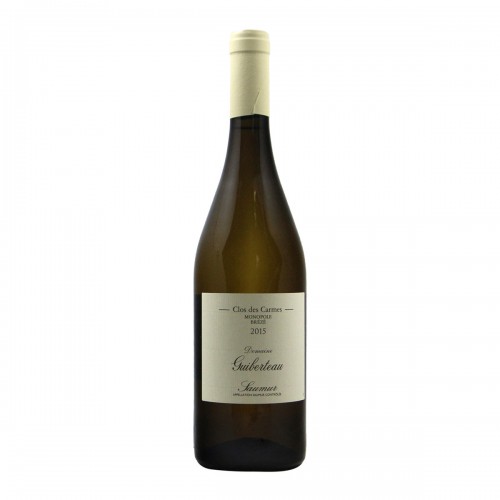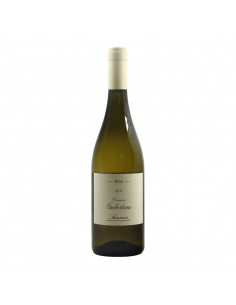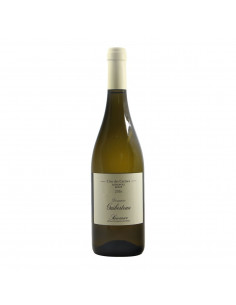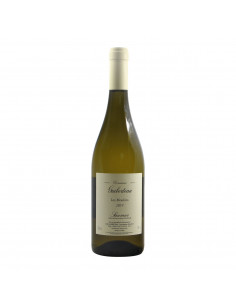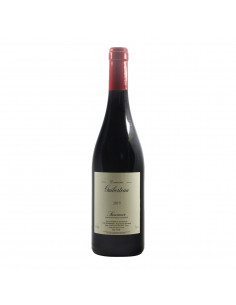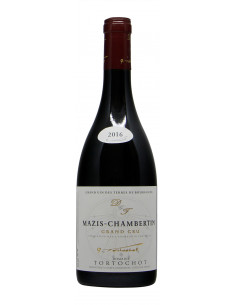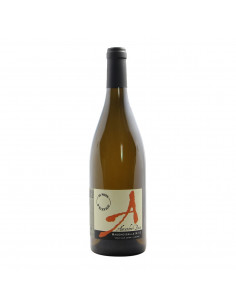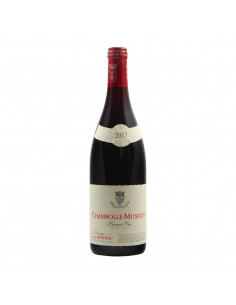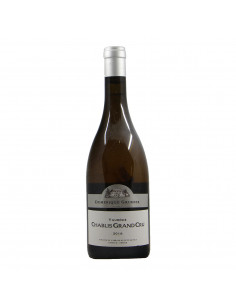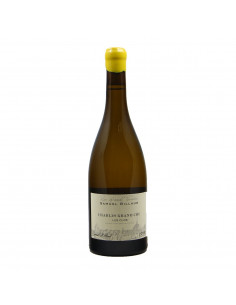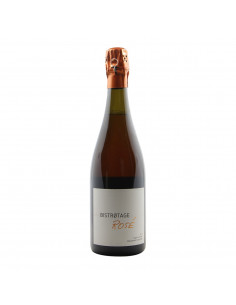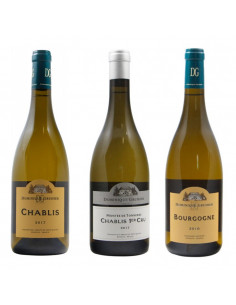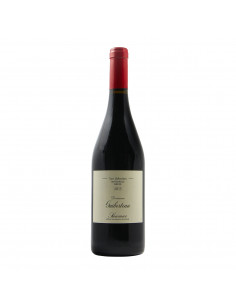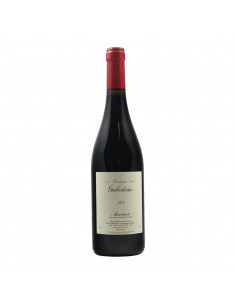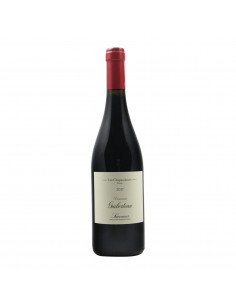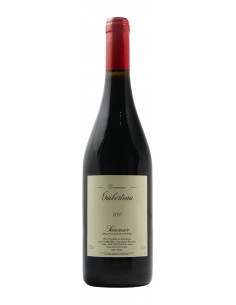Saumur Blanc Clos de Carmes 2015 Guiberteau
Saumur Blanc Clos de Carmes 2015 is a natural wine produced by the Guiberteau domaine. We are talking about the cutting edge of the company's production, which for class and elegance can easily be compared to a Burgundy Chardonnay, but at a much more affordable price. It presents itself at the sight of an intense straw yellow color, with very bright golden reflections. The nose is intriguing because it continues to release different aromas as the minutes pass, first mineral scents, which are intertwined with vegetal, balsamic and aromatic notes, with a delicate floral trail of broom flowers. The mouth is extremely fresh, we find the aromatic profile of the nose, enriched with notes of candied fruit. and above all a lot of salt. Sapidity is perhaps the main characteristic of Guiberteau white wines, synonymous with quality and elegance.
DENOMINATION: Saumur AOC
REGION: Loire Valley (France)
GRAPES: 100% Chenin Blanc
VINIFICATION: Whole bunch pressing, fermentation of indigenous yeast. Aged for 18 months on fine barrel lees (new oak and 1-2 years).
Natural Wines: the philosophy behind winemaking
Natural wine does not mean only without the addition of sulphites, it means working according to the ancient winemaking traditions with sulfur and copper in the vineyard, based on the effort of manual labor, the least interventionist activities possible letting the cycles of Nature do most of the work up to vinification of grape juice as it is, without any substances if not its own. The result of all this production philosophy is natural wine, a non-standardized wine that best expresses its identity, its terroir and its most intrinsic characteristics. Natural wines are much more difficult to produce than wines to which we are traditionally accustomed, because when there is no type of help from the use of balancing substances and support for winemaking, wine cannot be a way of putting: or is it good or bad. Natural wine was born as the commitment of the natural artisan winemakers to raise their product to the standardization of the taste and identity of the wine and the vineyard which, thanks to the widespread use of chemistry and new technologies, now leads to products with always the same flavors, regardless of the production area or the type of cultivation used. Biodynamic wine or natural wine, on the other hand, tends to enhance its identity, its essence, diversifying itself thanks to the exclusive organoleptic qualities that the precise terroir of belonging provides to the host grapes and which can only be expressed thanks to activities that do not intervene on the cultivation and winemaking processes.


